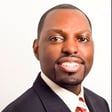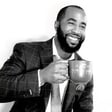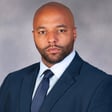Introduction & Overview
00:00:00
Speaker
almost like a rushing stream of water over rocky bed, over rocks that ended up into more of a wider body of water, maybe even an ocean where the water was more calm and clean.
Career Path Exploration
00:00:28
Speaker
Have you ever wondered what does my friend or cousin or partner actually do at work? Because if so, listen to Take Your Homeboy to Work Day podcast, the premier podcast to learn about careers in trades.
00:00:44
Speaker
Each episode, I interview guests from different professions and dive into the arcs of jobs held, the education and training received, the skills and experiences acquired, of course, how much you can earn, and the intrinsic fulfillment that motivates them. So for anyone interested in hearing the firsthand experience of a specific career, these conversations are your launching pad.
00:01:11
Speaker
And please subscribe, follow, like, and rate five stars on LinkedIn and wherever you get your podcasts. We'd love to have your support. Today's
Executive Leadership Insights
00:01:21
Speaker
episode will highlight executive leadership, such as CEOs, presidents, and other top level managers. Their focus is on setting the company's overall strategy and vision by giving direction and goals to employees.
00:01:39
Speaker
They have to make tough decisions around the company mission and vision. They have to balance the demands of investors and creditors. And they also serve as the public face of the company. It's a very intense role and with a lot of responsibility. And today's guest to share what that life is like is Monty Raglan, president and CEO of Protein Solutions Incorporated.
Meet Monty Raglan, CEO
00:02:06
Speaker
Monty is a people first leader with the love for the CEO and those working to make it better. And PSI is an IT consulting firm that offers services in areas like executive oversight, project management, business analytics, and so much more. And Monty recently assumed the helm of PSI in mid-22.
00:02:30
Speaker
So I'm excited to hear how these transitional months have been. And I'm also excited to learn what the day-to-day of the CEO's life is like, because it feels like a role shrouded in so much mystery. So I'm so appreciative of you coming on to the show to talk about your journey as a leader, Barzi. And thank you so much. Welcome to the show.
00:02:51
Speaker
Thanks Brandon, glad to be here. I'm hoping I can match your excitement level and energy that you're putting out there to the atmosphere today. I appreciate that, I'm sure you will. So I gave a brief introduction of what I think executive leadership is, but in your own terms, could you explain what is your experience, what has your experience been like being a CEO? What does that do, very high level?
From Day-to-Day to Strategic Oversight
00:03:22
Speaker
because being CEO is still new, for me it's still in an evolution type stage. But for me, my own beliefs around what I should be doing is really kind of communicating strategy and vision
00:03:48
Speaker
so that everyone understands where we're going and why.
00:03:54
Speaker
what our core values are, that we stay true to that North Star, and to help influence behaviors, you know, the behaviors that we want to see as each individual, you know, working together as a team, and then help deliver some results for the organization and for individuals and for our clients.
00:04:22
Speaker
but I'm still getting used to a better balance of not working in the business.
00:04:36
Speaker
but more on the business, right? So helping us see around corners, down the street around the corner versus what's happening today so much, because that's historically been more of what I've done is be more involved in certain day-to-day aspects. So still evolving.
Choosing Howard: A Journey of Discovery
00:05:00
Speaker
an analogy that came into my head is maybe instead of focusing on one tree in the forest, now you're looking at the entire forest and what to do versus going from in the job to on the job, I think with the preferences. Awesome. Awesome.
00:05:15
Speaker
So let's start all the way back at the beginning because becoming a CEO is a journey in and of itself. And so I'd love to learn the beginning. Of course, here on this show, we are a lover of HBCU. So I was really excited when I saw that you went to Howard. Can you explain, I guess first, how did you choose Howard? And then you chose business also. How did you choose business? That's what you wanted to study.
00:05:41
Speaker
So Howard was, that one's an interesting, an interesting experience in that it's kind of hard to explain, but it's true. It's really the, I chose Howard because I felt it was like the first time that, and it sounds weird, but God actually spoke to me.
00:06:06
Speaker
I really wasn't familiar with the university at the time. The only HBCU I was really experienced with because of living in Columbus, Ohio was Central State and Wilberforce here in Ohio.
00:06:23
Speaker
had never been to Howard University, didn't know anyone who had attended and attended a just kind of a career fair. Howard happened to be there. I was collecting information on every school that was there because I wasn't exactly sure where I wanted to go. I just knew I was going.
00:06:42
Speaker
um to college and uh in one night I was reading some information some something kind of you know uh kind of vanilla it was just some administrative information or admissions admissions information on uh on Howard University and uh I was overcome with uh just this kind of I didn't hear anything but something spoke to me and said this is where you have to go and it was clear and what it said
00:07:11
Speaker
down in my mind what I felt I heard, but I didn't hear a sound. And so that evening I told my parents, I said, hey, I'm not sure, but I think I'm supposed to go here. And that started the, you know, we started doing research and that's where I wound up. And it was, you know, experience that, you know, you can't really replace
00:07:39
Speaker
What was the second question? I'm sorry. How did you choose business as your degree? Yeah, so I really was involved in engineering and technology. It was pretty good in math, you know, in high school. So my
00:07:58
Speaker
teachers in high school were pushing me to go into like engineering, or, you know, it at that time because I'm old 80s, you know, it was still really really new, really new. Right. And so,
00:08:14
Speaker
I wanted to be figured I wanted to be a business man, business guy. So Howard University had an MIS track. And so I chose that MIS track, management information systems track when I started. However, I didn't stay there because the curriculum didn't speak to me.
00:08:37
Speaker
So I pivoted after the first couple of programming classes, which I could I could do. I just hated it. So I said, hey, I can't do this anymore. I was like, I can't do this for the rest of my life if this is what I'm going to be involved in. Not, you know, not knowing what God's plan was. So so I started.
00:09:02
Speaker
I stayed in business and just kind of pivoted to finance. I figured, hey, if I work around some money, I can't help but make some. Then, so I changed to finance and really enjoyed the curriculum. Really enjoyed the curriculum, did a number of internships with some investment groups, money management groups throughout my Howard career, and then started in
00:09:30
Speaker
in my career as a financial analyst, first at Ohio State University, I was financial analyst there for about five, six years. But interestingly enough, the exact opposite happened. So with MIS at Howard, hated the curriculum.
00:09:49
Speaker
and pivoted the finance, loved the curriculum, but hated the work. I didn't like, once I got into the industry, I didn't really like, and maybe it was my first couple of experiences in finance. I didn't really
Venturing into IT Consulting and Networking
00:10:04
Speaker
So I started to look for something different. I started to just keep my eyes open for other opportunities, which led me to just kind of ask backwards, excuse my language, falling into the industry that I'm now in as a, started off in this career as a consultant, kind of a contract recruiter, technical recruiter in engineering and IT.
00:10:32
Speaker
And so fast forward to today, that was over 30 years ago. So I've been in this industry now, which is primarily providing technology subject matter expertise for large and small organizations alike.
00:10:49
Speaker
for 30 years in a number of different roles that allowed me to sit in different seats in the industry to have different perspectives and then to grow teams and then to better understand the business in all aspects of it.
00:11:06
Speaker
Gotcha, gotcha. Thank you. Thank you. Now, first, thank you for sharing that initial, that emotional event that happened in your life. I guess I'm glad that it happened. And then, too, thank you for sharing a little bit about your journey through college.
00:11:21
Speaker
And thank you for even sharing how you switched majors once you realized you didn't like something. Because I love for the audience to realize that you don't have to be stuck pigeonholed into a path. If there's something else you see that you want to do, that's great. So thank you for sharing that story too.
00:11:37
Speaker
One thing you alluded to was that you fell fast, backwards, into this current industry. Could you share more about that? I mean, who introduced you? Who introduced you? Or was there a certain event or a book? What was it that helped you fall into it? Yeah. Yeah. It's another interesting story that
00:12:01
Speaker
The person that introduced me, that gave me an opportunity into this industry, when I had no experience, was someone who interviewed me for a position when I was at Howard. And I was still a finance major and looking for opportunities. I interviewed with a person at the time who was Anheuser-Busch. Yeah, Anheuser-Busch.
00:12:25
Speaker
out of Dallas, Texas. Yeah, Dallas, Fort Worth, Fort Worth, Texas. And I stayed, always stayed in touch with that person. So it was kind of a network. Someone I met through a set of interviews through networking that was in position
00:12:47
Speaker
and and I stayed in touch with that person not like on a daily weekly basis necessarily but just every now and then a touch point hey how you doing this is what I'm up to if you have opportunities keep me in mind and when I started to pivot to uh when I started to look for opportunities outside of the finance financial industry that I was in at the time that was one of the first people I reached out to and said hey
00:13:15
Speaker
I'm not sure what I want to do, but I'm sure that what I'm doing now isn't what I want to continue doing. And so I was able to leverage their already professional experience and they gave me, eventually gave me an opportunity. I was looking for them to just give advice, but they gave me an opportunity. So, you know, someone that I guess you would call them potentially a mentor. They weren't that much older than me though.
00:13:42
Speaker
that was big, weren't that much older than me. They were just already in their professional work life. And that's probably why we stayed in touch. Because when they interviewed me, they were maybe only five years older than me. But they were already in HR for Anheuser-Busch. They interviewed me for a position. We kind of hit it off. But it's the value of networking. And that's kind of a word that is elusive for a lot of folk, especially young African-Americans. What does that mean?
00:14:12
Speaker
It just means you have to be intentional. You have to be intentional with meeting and engaging people of all industries, different levels inside the industry, not just people that look like you. Because it's easy. Who you can be friends with, but people, and youth.
00:14:35
Speaker
who may be able to transfer some of their knowledge to you or give you some advice or point you in the right direction, right? So that's
Early Career Challenges and Lessons
00:14:45
Speaker
what networking is and you have to put yourself in position to network. So that's where the intention, you have to be intentional about it. Just go to events.
00:14:56
Speaker
You don't have to do anything special. Go win a prize. You just go and say hello. My name is Brandon, right? My name is Brandon, and this is what I'm currently doing. And what do you do? That's it. Just have a quick conversation, stay in touch with people, and you never know where that will lead you. But it led me to this industry. And 30 years later, that's where we sit.
00:15:20
Speaker
Yeah. So let me ask you this question then, because we're talking about your career, the arts of jobs that have built to you becoming a CEO. And even though you didn't enjoy the work when you were in finance, do you feel that some of those experiences have helped you along the way? Oh, absolutely. Absolutely. The first opportunity that I had as a financial analyst
00:15:49
Speaker
I was one that was, I'll summarize it by saying my then manager was someone who
00:16:03
Speaker
you know, I didn't really, we didn't really get along. And it was, you know, some of that was my fault, obviously. You know, anytime you're not getting along with another person, you have to take some ownership that, you know, you have a part in it. And, and I was a little, you know, you come out, you know, how were to do a job on you?
00:16:24
Speaker
When I say do a job, not negative, it'll just have you so, so confident, maybe overly confident. And a little bit to the point where people say people coming out of Howard or some of the HBCU are very arrogant. Frankly, I was one. I was very arrogant, extremely confident.
00:16:46
Speaker
And so I knew what I knew and I knew what I thought should, I should be, you know, the path I should be on and what I should, the opportunities that should be offered to me. And she treated me like a child, right? She treated me like a child. You know, I would do reports and she would mark my reports up, you know, like I was still in high school with stuff. Like, wait a minute, you gave me a job to do. I do this report and then you rewrite the whole thing.
00:17:11
Speaker
Right. To say what you want to say. It was just little things. But others at the university really, really liked some of the skills that I brought to the table because some of the first spreadsheet had just come out, Lotus 1-2-3, right? Lotus 1-2-3. This is way before Microsoft Office. Yeah. It was 1-2-3.
00:17:37
Speaker
And I was one of the only people at the university at the time that knew how to work it and write macros and stuff. And so a lot of the departments I was working for across the university were like, wow, I've been hearing about this guy in your department that can work magic. Seriously, they said you can work magic with these numbers. And I was just doing some macros with some spreadsheets. That was it. And so I was enjoying the work but treated like a child.
00:18:07
Speaker
And so she would ask me to do little things and at some points I wouldn't do them. I wouldn't do them because I was like, well, I know more stuff than you. It was immature. It was immature. And it was part of the arrogance, overconfident. And so she didn't like that I wouldn't listen to her all the time. Eventually I was getting ready to get pushed out the door. What it taught me.
00:18:35
Speaker
What it taught me was if you're not on the same page, if you report to someone and you're not on the same page with them, you need to leave because you're not going to win. Right. Well said. OK. Well, thank you for sharing that. So let's
HR vs. Talent Acquisition in Tech
00:18:55
Speaker
dive a little bit into some of those early years of HR staffing because these are the foundational years to becoming a CEO.
00:19:06
Speaker
What about HR staffing working in HR intrigued you?
00:19:11
Speaker
So I'll change the term from HR to talent acquisition. Okay, right. Right. So we're, the industry that I'm in is really more talent acquisition, is more talent acquisition than it is HR. You know, talent acquisition is really a subset of human resources. Human resources is a huge category of profession
00:19:36
Speaker
that could include a number of things, payroll, benefits, employee relations, a whole number of things. Talent acquisition is just a piece of that. And most true HR professionals, not to get off on the tangent, but most HR professionals, their true subject matter
00:19:59
Speaker
expertise isn't talent acquisition, it's usually something else. So talent acquisition is kind of a specialty area inside HR, which is what we're... And then this industry, we take it a little bit further. So it's talent acquisition, but it's tech talent acquisition.
00:20:21
Speaker
Right. So so now we get into technical or IT talent acquisition and that becomes a whole nother subject matter that, you know, you start to build some expertise around it. So that's something that we bring to the table. And if we do during this industry and you're at the end of the day, if you do your job right, then you're kind of a
00:20:50
Speaker
You know, you're really impacting your client on multiple levels. And that's one in their, you know, you're helping their HR team with talent acquisition, but you're also helping their IT team.
00:21:08
Speaker
by bringing in subject matter expertise that generally they don't have. Either they don't have it in-house and they need someone to come in and deliver something, some deliverable, or come in and transfer some knowledge to their internal staff and then be on to the next. That's really, so you're providing impact
00:21:36
Speaker
multiple areas of the organization. And so that's really just trying, you have to understand your client, what they need, what their culture is, where they are in the industry, who their competitors are, what challenges they're facing from an onboarding perspective, depending on what industry they're in.
00:22:00
Speaker
geographic areas, all those kinds of things. And if you play again, if you do your job, right, you know, you're really helping your client be efficient at their talent acquisition, right? So they're not wasting
Business Values and Client Alignment
00:22:14
Speaker
a lot of time. Because we generally have the expertise because we're doing this on a daily and generally HR isn't
00:22:23
Speaker
They're not usually recruiting like a really specific skill set in IT all the time. So when their IT manager says, hey, I need this type of skill, they're usually at a disadvantage because they don't understand the skill set and how it fits with everything else.
00:22:42
Speaker
That's our expertise, right? We should stand a little bit better than their HR team so we can help. So if we help them be more efficient, help them stay competitive in their marketplace, and they do, we specifically, our company, we only, for the most part, our client portfolio exists of organizations that
Rising Through the Ranks
00:23:10
Speaker
we do and have a foundational level of core values and those core values are that people come first, not dollars and cents. They're important and we are a for-profit business.
00:23:26
Speaker
Money can't be your primary driver. If money's your primary driver, you're not for us as a client, right? Because that's not how we operate our business. It's not our primary driver. It's up there. It's the top of the list.
00:23:46
Speaker
Yeah, I noticed that about you and your business. One of the first things you mentioned is your love for Central Ohio and those businesses working to make Central Ohio better. And that's the first thing you look for in a potential partner. So I noticed that about you. If you're people first, then look for that. So that's awesome to see.
00:24:05
Speaker
Let me ask you, so then as you are having success as a talent and talent acquisition, I see the next role that you held was an account manager and then you also went into a managing director role. Can you talk about that transition from talent acquisition to an account manager to being a managing director?
00:24:29
Speaker
How did all of those how did those come into place? Okay, so we're still Working on the career path. All right, so I got off topic. Sorry In that in that organization I was with that particular organization for about 15 years and that's where I know cut cut a lot of my teeth in
00:24:50
Speaker
being able to sit in multiple seats, same company, multiple seats, right? So you can really get a wide, you know, wide big picture view of everything that's going on or what needs to happen.
00:25:06
Speaker
to go from talent acquisition, you're really focused on interviewing, identifying, sourcing, interviewing, really top talent. Account manager is really the face, the person who's facing the client that you're delivering the talent to. So you go from sourcing and finding the talent to working with the client directly,
00:25:34
Speaker
to better understand their culture, what type of person has success in this organization from a personality profile, what types of skills, technology stack, what types of technologies they utilize to deliver and execute their mission.
00:25:54
Speaker
right? And then be able to either deliver that to your talent acquisition team, or still be a part of the talent acquisition team. In that particular organization, I was a little bit of both, right? So I just kind of started to hold multiple, wear multiple hats.
00:26:13
Speaker
And so that that really kind of helped really just kind of okay. I understand what you need. Mr. Miss client Let me go help find it for you and work with others on my team that can help find it that that led to managing director where you managing
Leadership Challenges with Former Peers
00:26:34
Speaker
of the business. Like, okay, so you're managing the team of account managers and business developers, then you're managing, now you're managing the, all the total acquisition or recruiting team, and then you're managing the folks who support that, those two groups with operations and back office and administrative support, right? So you're just managing the team. So
00:26:55
Speaker
You know, that was that that one going to managing director was tough the toughest of them all because uh for it as you grow through an organization often you're You know, you become colleagues friends with uh people then suddenly you're managing those friends and those people Yeah, that can be tough. So that that's that that that can be tough, right? So um
00:27:23
Speaker
there was some transition there that wasn't easy, wasn't smooth, but you just have to recognize like,
00:27:35
Speaker
where you are, what you're there for. And sometimes you have to change how you position yourself with those individuals. And if you're truly friends and that kind of stuff, then they'll generally understand. It may take some time. They have to take you to a different type of conversation. A different type of conversation at work and outside of work. Like, hey, I can't share that with you. Hey, I can't talk about certain things. But anyway.
00:28:03
Speaker
Well, thank you for that breakdown and even sharing a little bit about some of the tough growth. You know, I've had managers and bosses on, but you're the first person to actually talk about how the dynamic, the relationship with your peers change, especially if you say internally.
00:28:22
Speaker
you know, if you can go externally and get a manager role, that is easier. But to then manage people who used to be your peers, that can be a little stressful. So thank you for sharing. I guess bringing awareness to that, because this is the first time I've heard about it on this show. And I appreciate as somebody who went from being with my peers and then managing them in a previous role, it is extremely tough and tough to navigate. And you just want to I
Isolation in Executive Roles & Personal Growth
00:28:49
Speaker
guess for you, then let me ask you this, you know, with your
00:28:52
Speaker
personality and you ultimately rising to be CEO. How, how do you handle that relationship side? I mean, do you miss the friendship side with those people? Or I guess, you know, for me, it was tough. It was tough for me to leave that friendship side. And then I realized that I just enjoy being an individual contributor. I don't want to be a manager of people. So how
00:29:17
Speaker
How do you come to terms with, you know, I've been friends with these people for four years and now all of this has to change. How do you come to terms with that? So I'll try, hopefully I won't, this is going to be easy for me to get off track. So I'm going to need you to kind of keep the guardrails up as if we're bowling. So I don't bowl about a ball here. Will do. Yes. You asked, do I miss?
00:29:47
Speaker
Somewhat, yes, because when you're in leadership and executive leadership, you often find yourself in somewhat of a lonely place from a work, especially from a work, in a work setting. Because if you're doing your job right, you're pouring everything you have into others.
00:30:16
Speaker
providing them support when they're not having a good day, trying to remove stumbling blocks out of their way so they can have success, checking in on them on a regular basis to make sure that you've set them up, put them in the right position, trained them, all those things. But who's doing that for you?
00:30:39
Speaker
And so you have to be intentional and recognize that you can easily burn yourself out, right? If you're not intentional about having your own, your own
00:30:55
Speaker
group of support persons that may not be inside the organization with you, maybe outside the organization, that you can get some, you know, you can rejuvenate, you can get some fuel and some support and that you can vent.
00:31:12
Speaker
You know, you can vent some of your frustrations and so forth too. So yeah, man, it can be it can be tough but often you're you're put in a place of you know, there's
00:31:31
Speaker
versus in the Bible to really talk about, you know, how I think God talks about the mustard seeds. Sometimes farmers just kind of toss the seeds. Other times they plant seeds. And the plant seeds are usually the ones that are here. You're really kind of by yourself. There's a whole bunch of seeds all together.
00:31:52
Speaker
they really don't grow. But if you plant a seed, the right soil, it's usually kind of by itself, right? And it takes root. What am I saying? I'm saying often you're set aside from others, you know, from others so that you can establish root for what it is you're supposed to do and grow to be.
00:32:21
Speaker
So you have to be okay with being, what I'll say, somewhat isolated or on your own for a time, for a season, so that you can grow into what it is that's next for you.
Conclusion & Call to Action
00:32:38
Speaker
a great, is that an allegory? I guess that's a great allegory or a song of, you know, those difficult times is when you're actually, the growth is actually happening. When you feel alone, it may feel dark around you, but that's when the actual growth inside of you is happening for something greater. So thank you for that allegory. I appreciate it.
00:32:57
Speaker
Thank you for listening to Take Your Homeboy to Work Day podcast. This concludes part one. Check back in on Friday for part two. But before you go, we need your help to spread our message. So please subscribe, like, and rate five stars wherever you get your podcast and on LinkedIn at Take Your Homeboy to Work Day podcast. Thank you.














